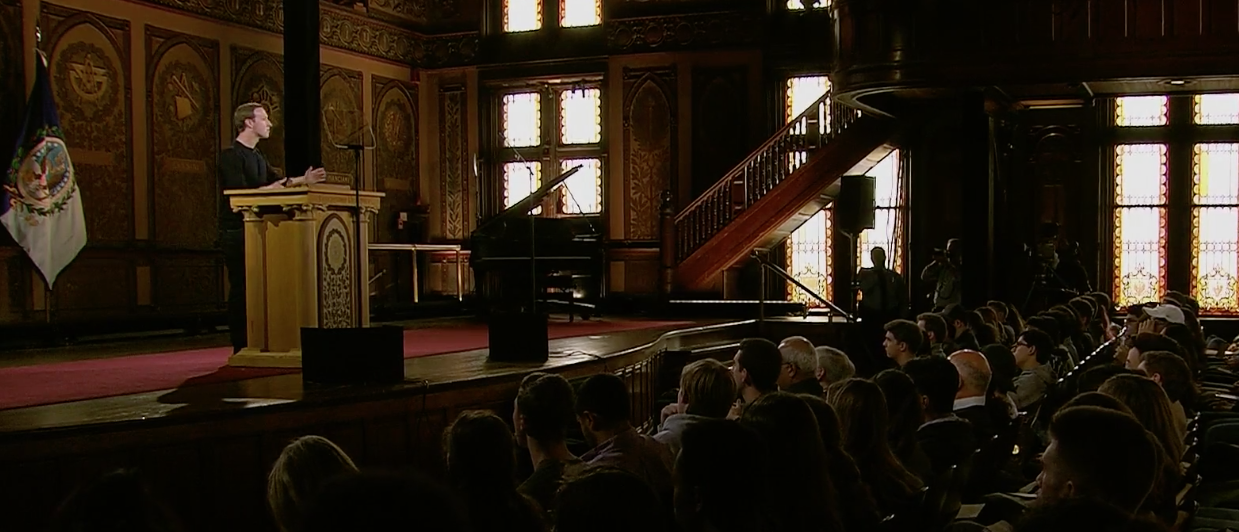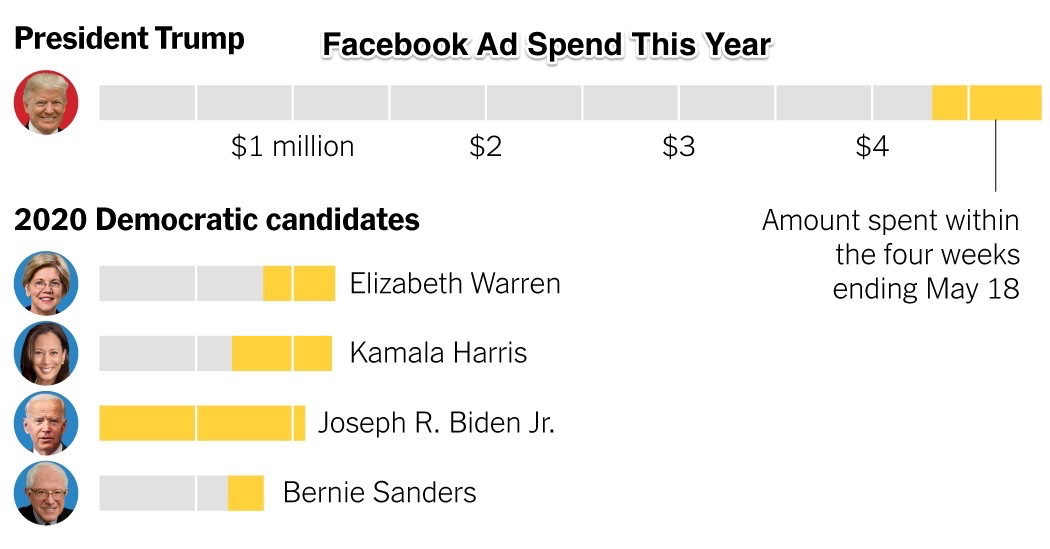
China is exporting its social values, political ads are an important part of free expression and the definition of dangerous speech must be kept in check, Facebook’s CEO Mark Zuckerberg argued today in a speech at Georgetown University.
He criticized how American companies that do business with China were becoming influenced by the country’s values. “While our services like WhatsApp are used by protestors and activists everywhere due to strong encryption and privacy practices, on TikTok, the Chinese app growing quickly around the world, mentions of these same protests are censored, even here in the U.S.!” Zuckerberg said. “Is that the Internet that we want?”
Because Facebook couldn’t come to an agreement with Chinese censors and thereby doesn’t operate in the nation, “Now, we have more freedom to speak out and stand up for the values that we believe in and fight for free expression around the world.” While he didn’t mention Apple, the NBA and Blizzard, which are amidst scandals about cowing to Chinese policy, the shade thrown at them was clear.
Zuckerberg spoke today for 40 minutes at Georgetown University and then did a Q&A to share his thoughts on speech and “how we might address the challenges that more voice and the internet introduce, and the major threats to free expression around the world.” He discussed how “We want the progress of free expression without the tension,” leading people to advocate for pulling back on free expression. “Where do you draw the line?”
Zuckerberg says that Facebook now has 35,000 people working on security, and the company’s security budget is higher now than the whole revenue of the company when it IPO’d, which was $5 billion in 2012. Facebook removes or downranks content that is objectively dangerous. Still, he says that he doesn’t want to “let the definition of what is dangerous expand beyond what’s absolutely necessary.”
Coining a new phrase, Zuckerberg noted that “People having the power to express themselves at scale is a new kind of force in the world — a Fifth Estate alongside the other power structures of society.”
On allowing political ads on Facebook even if they carry misinformation, Zuckerberg argues that “political ads can be an important part of voice, especially for local candidates, up and coming challengers and advocacy groups that the media might not otherwise cover. That way they can get their voice into the debate.” While that may be true, the same system allows whichever group or candidate has the most funding to dominate the narrative.
I recently argued that Facebook should drop all political ads until regulation to prevent their use to spread misinformation was passed. President Trump is spending more than many of his Democratic party rivals combined while using lies about them planning to remove the second amendment to raise money.

Still, Zuckerberg argues, “Banning political ads favors incumbents and whoever the media chooses to cover.” He did not address who spends the most or how Facebook could still offer free expression of candidates to their own followers even if it banned political ads. He essentially drew no distinction between freedom of speech and freedom of reach aka paid amplification through ads. Instagram CEO Adam Mosseri echoed this sentiment, equating ads and speech, tweeting “I believe that people deserve to hear what politicians are saying and make up their own minds.”
This ignores how President Trump has spent $4.9 million on Facebook ads this year compared to $9.6 million spent by the 23 Democratic candidates combined, and that Trump had outspent them all put together as of March. Banning political ads wouldn’t prevent candidates from saying what they want and being judged, but it would stop richer candidates’ speech from having more weight.

Overall, Zuckerberg sounded more passionate and empathetic than in his recent testimonies on Capitol Hill. He seemed to take on some of the cadence and tone of former President Barack Obama, pitching up his voice to stress the urgency of challenges facing democracy. However, the speech format allowed Zuckerberg to avoid immediate pushback on his points, such as why political advertising favors challengers if it’s incumbents with the most money to spend. Zuckerberg did hold a Q&A after his speech, but the stream of that wasn’t broadcast from his Page like the prepared remarks, and he mostly reiterated points from the speech.
Zuckerberg drove home one important theme threaded throughout the talk, though. He attempted to link the idea of U.S. companies potentially policing free expression to protect safety and elections with how China censors speech. And while other companies like the NBA and Blizzard that do significant business with the country try to downplay its influence, Zuckerberg spoke up about how the tentacles of China’s values are choking off speech far beyond its borders.

